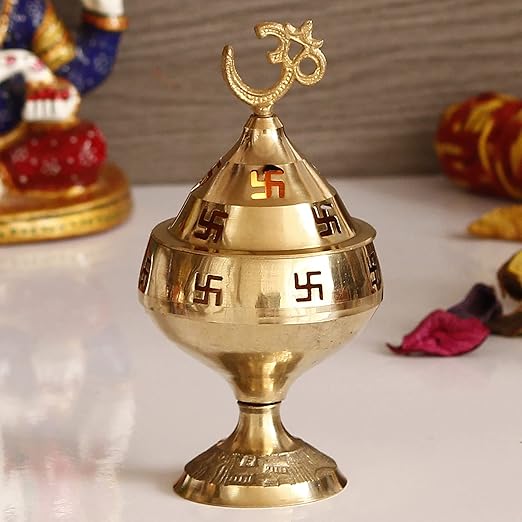🕉️ परिचय:
श्रावण मास हिन्दू पंचांग का पाँचवाँ महीना है जो आमतौर पर जुलाई-अगस्त में आता है। यह मास भगवान शिव को समर्पित होता है और इसे अत्यंत पुण्यदायक माना गया है। इस महीने के सोमवारों को विशेष महत्व प्राप्त है, जिन्हें श्रावण सोमवार कहा जाता है।
🌼 श्रावण मास का महत्व:
-
इस माह समुद्र मंथन हुआ था जिसमें भगवान शिव ने हलाहल विष पिया था।
-
भक्तगण शिवजी को प्रसन्न करने के लिए व्रत, उपवास और पूजन करते हैं।
-
मान्यता है कि श्रावण मास में शिव पूजा का फल 108 गुना अधिक मिलता है।
📅 श्रावण में आने वाले प्रमुख पर्व:
-
श्रावण सोमवार व्रत
-
श्रावण मास की शिवरात्रि
-
मंगल गौरी व्रत (मंगलवार को)
-
नाग पंचमी
-
रक्षा बंधन
-
जन्माष्टमी
🛕 पूजन एवं नियम:
-
दूध, जल, शहद से शिवलिंग का अभिषेक
-
बेलपत्र, धतूरा अर्पण
-
"ॐ नमः शिवाय" और "महामृत्युंजय मंत्र" का जाप
-
व्रत और संयमित भोजन
🍃 उपवास व आस्था:
भक्त जन फलाहार करते हैं, कुछ जल तक नहीं लेते। विशेषकर कन्याएं अच्छे वर की प्राप्ति हेतु सोमवार व्रत करती हैं।
Introduction to Shravan Month
Significance of Shravan Month
Shravan month is one of the holiest months in the Hindu calendar dedicated to Lord Shiva and spiritual practices.
Hindu Calendar Timing
Shravan usually falls between July and August depending on the lunar calendar.
Spiritual Importance
This month is considered highly auspicious for prayers fasting and performing religious rituals.
Popular Beliefs
Devotees believe that worshipping Lord Shiva during Shravan brings prosperity health and happiness.
Daily Practices
Devotees engage in daily prayers recitation of Shiva mantras and acts of charity during this month.
Rituals and Traditions
Observing Mondays (Somvar)
Mondays in Shravan are highly significant and are dedicated to fasting and worshipping Lord Shiva.
Special Pujas and Aartis
Special pujas and aartis are performed in temples to honor Lord Shiva and seek his blessings.
Fasting Rules
Devotees follow specific fasting rules avoiding certain foods and consuming only sattvic meals.
Temple Visits
Many devotees visit Shiva temples frequently to participate in rituals and offer prayers.
Charity and Giving
Acts of charity and helping the needy are encouraged as part of spiritual practice in Shravan.
Festivals in Shravan
Janmashtami Celebrations
Janmashtami is celebrated during Shravan with devotion and elaborate rituals in many parts of India.
Nag Panchami
Nag Panchami is observed to worship serpents and seek protection from negative energies.
Raksha Bandhan
Raksha Bandhan celebrates the bond between brothers and sisters and is observed with rituals and gifts.
Other Regional Festivals
Various regional festivals and fairs take place during Shravan reflecting local traditions and devotion.
Community Celebrations
Communities organize cultural and devotional programs enhancing social and spiritual bonding.
Devotional Practices
Chanting Mantras
Devotees chant Shiva mantras daily to seek divine blessings and spiritual upliftment.
Reciting Sacred Texts
Reading sacred texts like Shiva Purana and other scriptures is encouraged for spiritual growth.
Performing Abhishekam
Performing abhishekam on Shiva lingams is a common ritual to honor Lord Shiva.
Meditation and Prayer
Meditation and prayer help devotees connect with divine energy and attain inner peace.
Offering Flowers and Fruits
Offering flowers fruits and other sacred items is an essential part of devotion during Shravan.
Conclusion
Spiritual Benefits of Shravan
Observing Shravan month brings peace prosperity and spiritual progress to devotees.
Encouragement for Devotees
Devotees are encouraged to follow rituals chants and fasting to maximize blessings and inner growth.
Integration into Daily Life
Practices of Shravan month can be integrated into daily life for ongoing spiritual benefits.
Mental and Emotional Benefits
Regular devotion prayer and meditation during Shravan improve mental clarity and emotional stability.
Community and Family Participation
Shravan month encourages family and community participation strengthening social and spiritual bonds.
Shravan month is one of the holiest months in the Hindu calendar dedicated to Lord Shiva and spiritual practices.
Shravan usually falls between July and August depending on the lunar calendar.
This month is considered highly auspicious for prayers fasting and performing religious rituals.
Devotees believe that worshipping Lord Shiva during Shravan brings prosperity health and happiness.
Devotees engage in daily prayers recitation of Shiva mantras and acts of charity during this month.
Mondays in Shravan are highly significant and are dedicated to fasting and worshipping Lord Shiva.
Special pujas and aartis are performed in temples to honor Lord Shiva and seek his blessings.
Devotees follow specific fasting rules avoiding certain foods and consuming only sattvic meals.
Many devotees visit Shiva temples frequently to participate in rituals and offer prayers.
Acts of charity and helping the needy are encouraged as part of spiritual practice in Shravan.
Janmashtami is celebrated during Shravan with devotion and elaborate rituals in many parts of India.
Nag Panchami is observed to worship serpents and seek protection from negative energies.
Raksha Bandhan celebrates the bond between brothers and sisters and is observed with rituals and gifts.
Various regional festivals and fairs take place during Shravan reflecting local traditions and devotion.
Communities organize cultural and devotional programs enhancing social and spiritual bonding.
Devotees chant Shiva mantras daily to seek divine blessings and spiritual upliftment.
Reading sacred texts like Shiva Purana and other scriptures is encouraged for spiritual growth.
Performing abhishekam on Shiva lingams is a common ritual to honor Lord Shiva.
Meditation and prayer help devotees connect with divine energy and attain inner peace.
Offering flowers fruits and other sacred items is an essential part of devotion during Shravan.
Observing Shravan month brings peace prosperity and spiritual progress to devotees.
Devotees are encouraged to follow rituals chants and fasting to maximize blessings and inner growth.
Practices of Shravan month can be integrated into daily life for ongoing spiritual benefits.
Regular devotion prayer and meditation during Shravan improve mental clarity and emotional stability.
Shravan month encourages family and community participation strengthening social and spiritual bonds.


